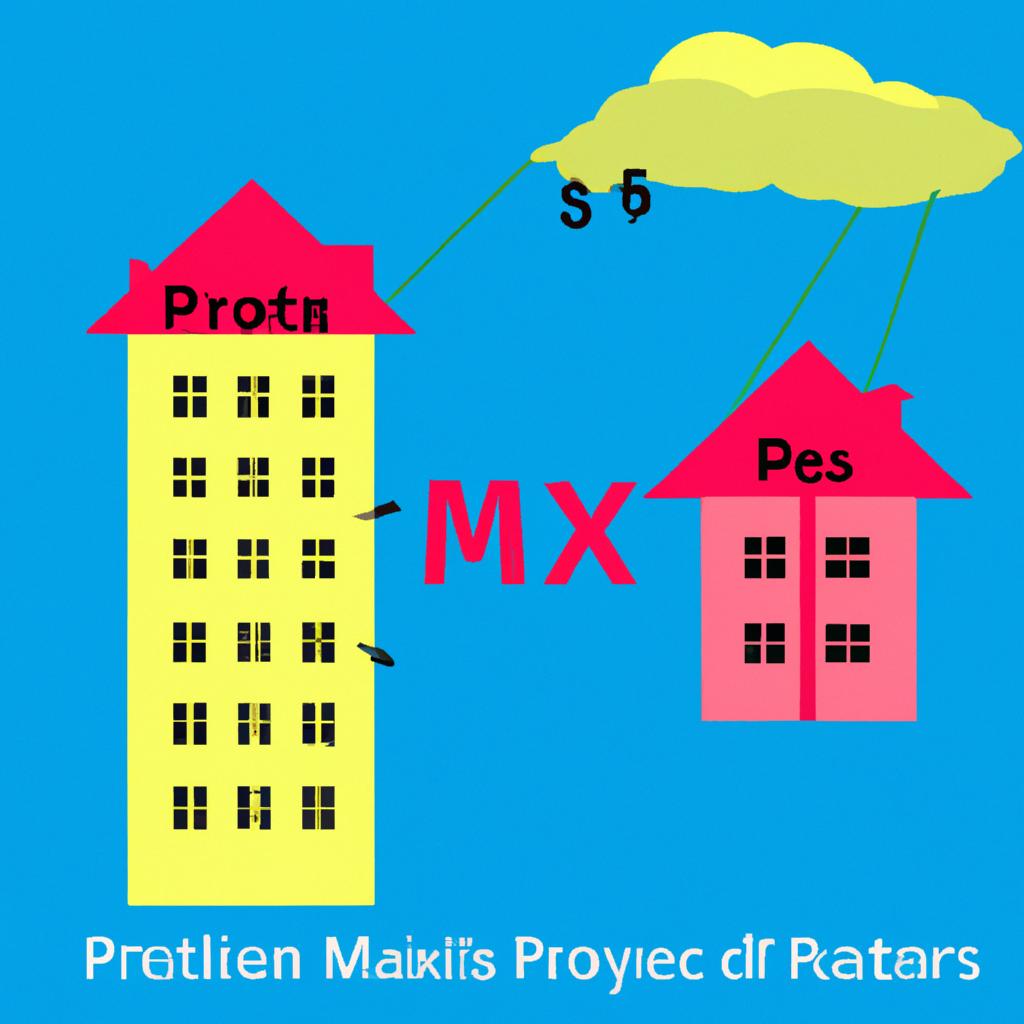In the realm of estate planning and probate, the sale of inherited property often presents a unique set of challenges and considerations. As seasoned practitioners in the field of elder law and trusts, Morgan Legal Group, based in the bustling metropolis of New York City, has extensive experience navigating the intricacies of inherited property sales. In this article, we delve into the nuanced legal and financial implications of selling inherited property, providing invaluable insights for individuals seeking to effectively manage their estate.
Understanding the Legal Implications of Selling Inherited Property
When selling inherited property, it is essential to understand the legal implications that come with it. One of the key considerations is determining the basis for capital gains tax purposes. Inherited property receives a step-up in basis to the fair market value at the time of the decedent’s death. This means that the sale price is compared to the fair market value at the time of inheritance, rather than the original purchase price, potentially resulting in a lower capital gains tax liability.
Additionally, it is crucial to consider any potential claims from other heirs or creditors. Make sure to address any outstanding debts or disputes before proceeding with the sale. This will help avoid complications and legal challenges down the road. Consulting with an experienced estate planning attorney can provide valuable guidance throughout the process to ensure a smooth and legally sound sale of inherited property.

Navigating Complex Tax Considerations in an Inherited Property Sale
requires a thorough understanding of the legal and financial implications involved. One key factor to consider is the step-up in basis that occurs when inheriting property, which can affect the capital gains tax owed upon the sale of the property. This adjustment to the property’s value at the time of inheritance can result in significant savings for the heir.
Another important consideration is the potential for estate taxes to be levied on the inherited property, especially if the estate exceeds certain thresholds. Proper planning and expert guidance can help minimize tax liabilities and ensure that the sale of the inherited property is carried out in a tax-efficient manner. Consulting with a knowledgeable estate planning attorney can help navigate these complex tax considerations and maximize your financial benefits from the sale of an inherited property.
Ensuring a Smooth Transfer of Title in the Sale of Inherited Real Estate
One crucial aspect when dealing with the sale of inherited real estate is ensuring a smooth transfer of title. This is essential to avoid any complications or disputes that may arise during the process. At Morgan Legal Group, we specialize in handling estate planning and probate matters, including the sale of inherited properties. Our team of experienced lawyers can guide you through the necessary steps to transfer the title seamlessly and efficiently.
To ensure a successful transfer of title in the sale of inherited real estate, it is important to follow these key steps:
- Obtain the necessary documentation: Gather all relevant documents, including the will, death certificate, and any other legal paperwork related to the inheritance.
- Clear any outstanding debts or liens: Before transferring the title, it is essential to settle any outstanding debts or liens on the property to ensure a clean transfer.
- Consult with a real estate attorney: Working with a real estate attorney can help you navigate the legal requirements and procedures involved in transferring the title smoothly.
- Update the property records: Make sure to update the property records with the new owner’s information to finalize the transfer of title.

Maximizing Profits and Minimizing Risks in Selling Property Passed Down Through Generations
When it comes to selling property that has been passed down through generations, it is essential to maximize profits while minimizing risks. Proper planning and knowledge of the legal implications surrounding inherited property sales are crucial in ensuring a successful transaction.
At Morgan Legal Group, we specialize in estate planning and probate law, guiding our clients through the complexities of selling inherited property. By utilizing proven strategies and leveraging our expertise, we help our clients navigate potential obstacles and achieve their financial goals. With careful consideration of tax implications, market trends, and familial dynamics, we strive to optimize the sale process for our clients, providing peace of mind and a seamless transaction.
Q&A
Q: What is inherited property sale?
A: Inherited property sale refers to the process of selling a property that has been passed down to an individual through inheritance.
Q: What are common reasons for selling inherited property?
A: Some common reasons for selling inherited property include the need for financial liquidity, lack of interest in maintaining the property, or wanting to divide the proceeds among multiple heirs.
Q: Is it necessary to go through probate before selling inherited property?
A: Yes, in most cases, inherited property must go through the probate process before it can be sold. This involves validating the will, resolving any outstanding debts, and transferring ownership of the property to the heirs.
Q: What are important factors to consider when selling inherited property?
A: Some important factors to consider when selling inherited property include the current market value of the property, any outstanding debts or taxes owed on the property, and the preferences of the heirs regarding the sale.
Q: Are there any tax implications for selling inherited property?
A: Yes, there can be tax implications for selling inherited property. It is important to consult with a tax professional to understand the potential capital gains tax or inheritance tax implications of the sale.
Q: How can one maximize the sale price of inherited property?
A: To maximize the sale price of inherited property, it is recommended to clean and declutter the property, make any necessary repairs or upgrades, and work with a real estate agent who specializes in selling inherited properties.
The Conclusion
In conclusion, selling inherited property can be a complex and emotional process. By following the right steps and seeking professional guidance, you can navigate through the challenges and make the most out of the sale. Remember, each property holds a piece of history and memories, so ensure that you take the time to honor the past while moving towards a new future. With patience and determination, you can successfully sell your inherited property and unlock new possibilities for the next chapter in your life. Thank you for reading and best of luck on your journey!
 Inherited Property Sale: What You Need to Know
Inherited Property Sale: What You Need to Know
Inheriting property from a loved one can be both an emotionally and financially overwhelming experience. Amidst the grieving process and legal requirements, you may find yourself tasked with selling the inherited property. While it may seem like an added burden, the process of selling inherited property can actually bring significant benefits. In this article, we will dive into the ins and outs of an inherited property sale, including its benefits, practical tips, and case studies.
What is an Inherited Property Sale?
An inherited property sale refers to the process of selling a property that has been passed down to you through the will of a deceased family member or relative. In most cases, the property is passed down through the Probate Court, which handles the distribution of assets to the beneficiaries listed in the will. Once the property is legally transferred to your name, you have the option to either keep it or sell it.
Benefits of Selling Inherited Property
Selling inherited property may seem like a daunting and emotional decision, but it can actually bring numerous benefits. Some of the most notable benefits of selling inherited property include:
1. Eliminates Financial Burden – Inheriting a property may also mean inheriting financial responsibilities such as mortgage payments, property taxes, and maintenance costs. By selling the property, you can relieve yourself from these ongoing expenses and free up your finances for other uses.
2. Generates Cash Flow – Depending on the value and location of the inherited property, selling it can provide a significant amount of cash flow. This can be especially beneficial if the property is in a desirable location or in high demand.
3. Avoids Potential Disputes – Inheriting a property with multiple siblings or relatives can often result in disagreements and conflicts. By selling the inherited property, you can avoid potential disputes and ensure a fair distribution of assets among the beneficiaries.
4. Minimizes Emotional Attachment – Selling inherited property can also allow you to let go of the emotional ties and memories associated with the property. This can be beneficial for individuals who are looking to move on or have no use for the property.
Practical Tips for Selling Inherited Property
Selling inherited property can be a complex process, but with the right approach, it can be a seamless and successful experience. Here are some practical tips to keep in mind when selling your inherited property:
1. Understand the Legal Requirements – Before you can sell the inherited property, you must go through the legal process of Probate. This involves obtaining a Letter of Testamentary or Letter of Administration, which gives you the legal authority to sell the property.
2. Assess the Property’s Value – It is crucial to have a professional appraisal or get a market evaluation to determine the value of the inherited property. This will help you set a realistic selling price and negotiate with potential buyers.
3. Consider Tax Implications – Selling inherited property may have tax implications, depending on the value of the property and the laws in your state. It is essential to consult with a tax professional to understand the potential taxes you may owe.
4. Prepare the Property for Sale – To maximize the selling price of your inherited property, consider making necessary repairs and renovations, decluttering, and staging the property. This can significantly increase its appeal to potential buyers.
5. Hire a Real Estate Agent – Selling inherited property can be a complicated process, and hiring a real estate agent who has experience in handling such sales can make a significant difference. They will guide you through the process, handle negotiations, and ensure a smooth sale.
Case Studies
Selling inherited property can bring diverse outcomes, depending on various factors such as location, market conditions, and personal preferences. Let’s take a look at two different scenarios to get a better understanding of what to expect from an inherited property sale.
Case Study 1: Susan inherited a property in a desirable location in the city. The property was in good condition, and Susan decided to make some minor repairs and list it for sale. Within a month, the property was sold for a significant profit, providing Susan with a substantial amount of cash flow.
Case Study 2: Tom inherited a property in a rural area, which was in need of significant repairs and renovations. After consulting with a real estate agent, Tom decided to make necessary repairs and list the property for sale at a relatively low price. Despite this, it took several months for the property to sell, and Tom received a lower selling price than expected.
First Hand Experience
As someone who has recently inherited a property and sold it, I can vouch for the benefits and challenges that come with the process. While it was emotional to let go of my family’s home, I ultimately decided to sell as it was not feasible for me to maintain it. The sale provided me with financial relief and allowed me to move on, but it was a complex process that required thorough research and the support of a real estate agent.
In conclusion, selling inherited property can be a rewarding experience that brings financial and emotional benefits. However, it is essential to understand the legal requirements and practical tips to ensure a successful sale. Whether you decide to keep or sell the inherited property, remember to consult with professionals and approach the process with a well-informed and practical mindset.





